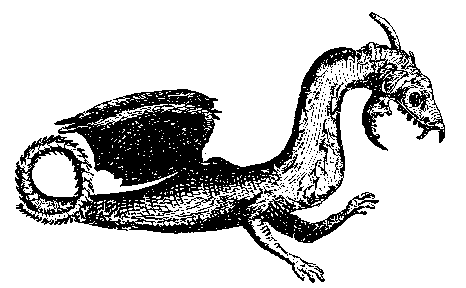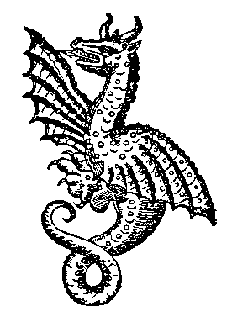DRAGONS
In medieval cultures, dragons were figures of fables,
stories and poems. The warriors who fought these mystical creatures earned great honor by
defeating them. Yet even though we do not believe in dragons anymore, we still face
disasters and catastrophes and need heroes to guide and defend us. Those heroes have
changed their physical appearance over the time, but still represent an elite group of
people striving for respect and honor.

The mythical dragons of today are aliens or giant rocks
from outer space that endanger mankind. Instead of fables, stories or poems, we have
feature films telling us who or what is going kill us. The warriors of today are movie
stars who defend our world from being destroyed. It is well known that these celebrities
earn lots of honor and gain power. They are able to get into really important positions in
regular life, which enables them to play a major role in our society, for example, in
politics, like Ronald Reagan.
This is how it all comes back to the medieval meaning where
a successful warrior was honored and received the trust of his people. After earning his
glory on the battlefield, he had yet to prove his ability to rule his tribe in peace
times. Many failed this task and became feared rulers. This way, they replaced themselves
for the dragons they just killed.
 Thus, mankind started to focus on fighting each other
instead of for one another, basically just because there was nothing left than man to
fight anymore. As wars became bigger and heroes fewer, it became obvious that influential
people (leaders of countries) had become the dragons of the next age.
Thus, mankind started to focus on fighting each other
instead of for one another, basically just because there was nothing left than man to
fight anymore. As wars became bigger and heroes fewer, it became obvious that influential
people (leaders of countries) had become the dragons of the next age.
The world has changed, but
the fears of the people are still the same. They don’t fear the dragons anymore, but
their inheritors, the dictators and charlatans. People in charge will always face the
problem of having to show power and at the same time ensure safety especially in times
where it is hard to distinguish between good and bad, hero or dictator. That’s why
every generation to come will be able to identify itself and apply the meaning of those
old fables, myths, and stories to their individual lives.
Written by Lars Dahlhaus, Feb. 1999
 Thus, mankind started to focus on fighting each other
instead of for one another, basically just because there was nothing left than man to
fight anymore. As wars became bigger and heroes fewer, it became obvious that influential
people (leaders of countries) had become the dragons of the next age.
Thus, mankind started to focus on fighting each other
instead of for one another, basically just because there was nothing left than man to
fight anymore. As wars became bigger and heroes fewer, it became obvious that influential
people (leaders of countries) had become the dragons of the next age. 